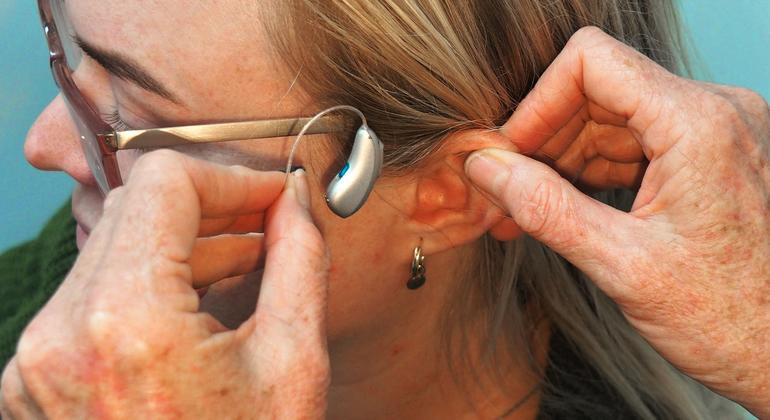Produced jointly by the World Health Organization (WHO) and UN Children’s Fund (UNICEF), The Global Report on Assistive Technology presents new evidence of the global need for – and access to – tech that can make a fundamental difference.
“Assistive technology is a life changer – it opens the door to education for children with impairments, employment and social interaction for adults living with disabilities, and an independent life of dignity for older persons,” said WHO chief Tedros Adhanom Ghebreyesus.
We call on all countries to fund and prioritize access to assistive technology – WHO chief
Huge disparities
Although more than 2.5 billion people require one or more assistive products to support communication and cognition – such as wheelchairs or hearing aids – a shocking one billion simply have no access to them.
The report highlights the vast gap between low and high-income countries, with an analysis of 35 States revealing that admittance varies from three per cent in poorer nations, to 90 per cent in wealthy countries.
“Nearly 240 million children have disabilities,” said UNICEF Executive Director Catherine Russell.
Denying them the right to the products they need to thrive not only harms individual children, “it deprives families and their communities of everything they could contribute if their needs were met,” she added.
Identifying obstacles
Affordability is a major barrier to access, the report notes.
Around two thirds of people using assistive products reported paying out-of-pocket while others have had to financially rely on family and friends.
Meanwhile, aging populations and rising cases of noncommunicable diseases, mean that the number of people in need of assistive technology is likely rise to 3.5 billion, by 2050.
A survey of 70 countries found large assistive technology gaps in services and levels of workforce training, especially in cognition, communication and self care.
Other key barriers revealed in previous WHO surveys included unaffordable prices, a lack of awareness and services, inadequate product quality, and procurement and supply chain challenges.
Multiple gains
Assistive products are generally considered a means to participate in life on an equal footing with others.
Without them, people risk isolation, poverty and hunger; suffer exclusion, and depend more on family, community and government support.
And the users are not the only ones to reap benefits: families and societies also profit.
“Denying people access to these life-changing tools is not only an infringement of human rights, it’s economically short-sighted,” said Tedros.
Enabling more access to quality-assured, safe and affordable assistive products reduces health and welfare costs, such as recurrent hospital admissions or state benefits, and promotes a more productive labour force, indirectly stimulating economic growth.
Raising children
Access to assistive technology for children with disabilities is often the first step for development, access to education, participation in sport and civic life, and preparation for employment like their peers, the report says.
However, as they grow, they are faced with additional challenges, such as frequent adjustments or the need to replace tech aids.
“Without access to assistive technology, children with disabilities will continue to miss out on their education, continue to be at a greater risk of child labor and continue to be subjected to stigma and discrimination, undermining their confidence and wellbeing,” warned the UNICEF chief.
Improving access
The Global Report provides a series of recommendations to expand availability and access, raise awareness, and implement inclusion policies to improve the lives of millions.
It specifically advocates for improving access within education, health and social care systems; ensuring the availability, effectiveness and affordability of assistive products; enlarging, diversifying and improving workforce capacity; and investing in research, innovation, and an enabling ecosystem.
The brief also underscores the need to increase public awareness and combat stigma; develop and invest in enabling environments and evidence-based policies and include this vital technology in humanitarian responses.
“We call on all countries to fund and prioritize access to assistive technology and give everyone a chance to live up to their potential,” underscored the top WHO official.





